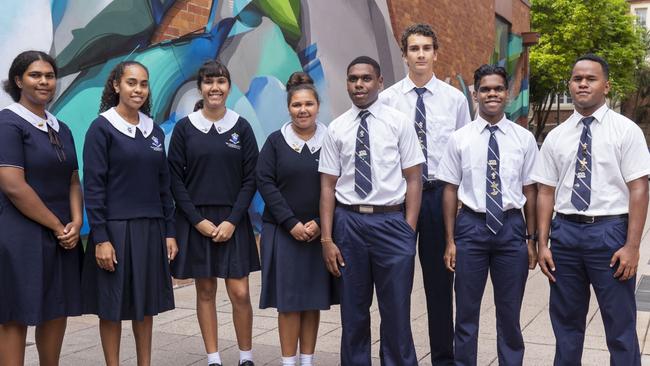Indigenous students excel as cloud looms over scholarship funding
A successful program has appealed for ongoing federal financial support in order to meet growing demand for scholarships.

A leading scholarship program for Indigenous students that produced its best outcomes during the height of the pandemic is facing an uncertain future, with government funding set to run out at the end of this year.
The Australian Indigenous Education Foundation reported a record 96 per cent completion rate among its Year 12 students during 2020, up from 91 per cent the year before. Retention among the 380-plus students supported by the foundation was similarly high, despite the Covid-19 outbreak forcing many to leave their boarding schools and return home to study remotely.
AIEF executive director Andrew Penfold said scholarship students and alumni had proven to be “beacons of inspiration” throughout a particularly challenging year, showing “resilience, tenacity and resolve”.
“We witnessed the spirit and dedication of students as they adapted to remote learning overnight, embracing new technologies and changing the way they connected with their peers and teachers to ensure that their education could continue,” he said.
However, the foundation, which has experienced growing demand for scholarships in recent years, is concerned about its ability to continue to support the educational attainment of Indigenous Australians, without ongoing federal funding of about $10 million a year. The AIEF currently receives about two-thirds of its income via the government, with the remainder coming from corporate and private donations. Annual expenses amount to about $13m.
Mr Penfold said government funding had not been confirmed beyond the end of the year. “It’s very difficult for us to continue to operate at this current scale without having certainty of ongoing funding,” he said. “If we don’t continue to receive funding we’d certainly have to wind things back.”
Founded in 2008, the AIEF offered a single scholarship it is first year and 43 the following year. It supported 385 secondary and tertiary students in 2020.
Chairman Nyunggai Warren Mundine said demand exceeded availability. “At present AIEF is forced to turn down some of the hopeful applicants seeking a quality education, and who are equally deserving of this chance as any other current students,” he said.
Kirsty Grieve, 17, hails from the cattle town of Normanton in the Gulf of Carpentaria, where her local schooling options would have ended at Year 10. Thanks to an AIEF scholarship she has been studying and living at The Cathedral School in Townsville for the past three years and was recently appointed boarding house captain.
“It’s been a really good opportunity and a good place to shape me as a person,” Kirsty said.
A spokeswoman for Minister for Indigenous Australians Ken Wyatt said the federal government had invested $116.2m in the AIEF program since 2008.



To join the conversation, please log in. Don't have an account? Register
Join the conversation, you are commenting as Logout